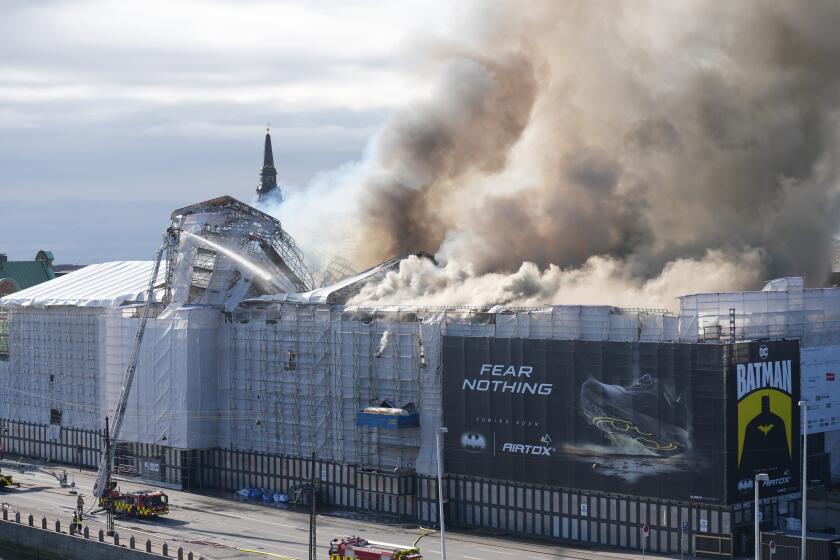LGBT elders benefit from service, advocacy group
LGBT older adults have a resource and partner in SAGE.
It’s been an ongoing connection since 1978. First founded in New York City as Senior Action in a Gay Environment, the group has evolved to become Services and Advocacy for GLBT Elders. Its founding mission was to reach out and support those living in isolation by offering a social network. Today, the organization is national with 26 affiliates in 17 states and D.C.
In Southern California, SAGE of the Desert is housed at the LGBT Community Center of the Desert in Palm Springs. The Center’s mission is to enrich the lives of the LGBT community through senior programming, a clinical counseling and internship program, a food bank, social and recreational offerings, a free cyber center, a volunteer program and periodic special events.
We asked the national organization’s Executive Director Michael Adams to give the full picture of SAGE and its work.
Why was and is SAGE necessary?
We find that many LGBT older people are aging without family or community supports, and many of them eventually encounter a long-term care system and other aspects of aging that don’t support them as LGBT people. This was the premise in 1978, and we still see it today. SAGE is necessary because we need to improve that aging landscape for LGBT older people. We do that by working with aging providers to train them on the needs of LGBT older people, and we provide and coordinate aging services to the growing population of LGBT elders around the country. Our policy work is necessary because it addresses the barriers facing LGBT older people, such as a lack of funding for LGBT-friendly services, few policy approaches that would enable more LGBT-supportive housing, and a dearth in data collection on the lives of LGBT older people.
What are the issues that most affect LGBT seniors?
Broadly speaking, the issues are a lack of financial security, smaller support systems, an unwelcoming (and sometimes hostile) aging and long-term care system, and unequal treatment under the law. As a 52 year-old gay man, I’m of an age where I watched many friends and loved ones die from AIDS in the ‘80s and ‘90s. In living through, and surviving, the AIDS crisis, one of the things that was powerfully driven home to us is that we can’t take aging for granted. Many of us thought we would never live long enough to grow old. Reflecting on that, it’s fair to say that members of the LGBT community have had to fight for the right to get old. And having won that fight in many cases, it only makes sense that we would work just as hard to make our old age something that is worth fighting for. That’s the real power that I find at a very personal level in SAGE’s work with and on behalf of LGBT elders — that sheer determination to re-shape the world into a more fair and welcoming place for all people, regardless of who we love and how many birthdays we’ve celebrated.
How is SAGE helping to address these issues?
SAGE provides and coordinates services through 26 affiliates around the country, as well as at our national headquarters in New York City, where we operate the country’s first, innovative full-time LGBT senior center. We train aging providers nationwide on the needs of LGBT older people through our National Resource Center on LGBT Aging, which was seeded by the U.S. Department of Health and Human Services in 2011. Last year we trained more than 1,000 providers and reached more than 26,000 people with our online resources. Finally, we engage in public policy advocacy at the federal level and at the city and state levels. Two recent examples: We’ve informed and helped move federal proposals that would increase funding and support for LGBT elders nationwide, including recent bills on the Older Americans Act. And we partnered with the White House to host the first-ever White House LGBT Conference on Aging in May 2012.
What is the best way to further understanding between older LGBT and straight adults?
What we have seen over and over again is that perhaps the most effective way to build acceptance is for straight people to get to know their LGBT neighbors, co-workers, friends and loved ones. The reality is that just about everybody knows and cares about somebody who is LGBT, whether they know it or not. Once we get to know each other, we realize that we’re all human beings and we’re all deserving of respect and fair treatment.
For more information, visit www.sageusa.org.
Rose Marie Mikolajczak for Primetime
More to Read
Start your day right
Sign up for Essential California for news, features and recommendations from the L.A. Times and beyond in your inbox six days a week.
You may occasionally receive promotional content from the Los Angeles Times.






